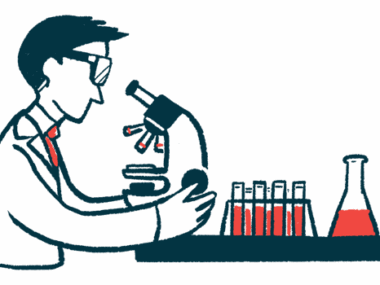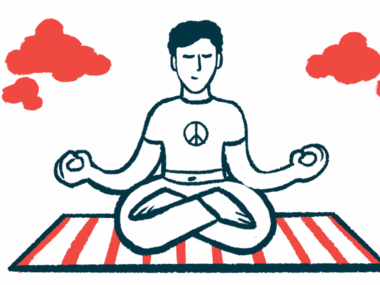How climate change and strange weather patterns affect my health
An abnormal winter is forcing a change in this columnist's treatment strategy
Written by |

For years, the TV news program “60 Minutes” on CBS featured a frequent segment by broadcaster Andy Rooney. In it, Rooney would pontificate on the day’s important topics. Sometimes he’d come up with a solution to a particular problem, while other times he’d rant just to rant. But his purpose and passion in bringing light to even mundane issues was always the same. I like to think of this column as being inspired by what Rooney did.
On that note, the topic of this column is climate change, something that everyone must deal with. For people like me with cystic fibrosis (CF) and other respiratory issues, climate change can complicate our ability to thrive and to survive. We already rely on multiple nebulizers, inhalers, antibiotics, and other treatments. Now we must also navigate changing weather patterns and temperatures. There were times when I felt as if I couldn’t breathe and the airways in my lungs were clogged.
I graduated in 2015 from Saint Peter’s University in New Jersey, with a bachelor’s degree in political science. I spent a large chunk of my senior year studying climate change and disaster risk reduction. The main goal of the latter is to prepare cities, states, and countries for natural disasters.
When Hurricane Sandy hit the shores of New Jersey in October 2012, I was forced to change how I took my medicine and did physical therapy. Physical therapy is a necessity because it helps to clear up the mucus in my lungs, which get clogged because of CF. Due to a power outage that lasted a few days, I had to rely on an older method of physical therapy in which a person claps on a patient’s lungs.
Lately, I’ve been asking myself what we, as a society, can do to combat climate change. This winter in New Jersey has been so abnormal that I can’t remember anything like it. Temperatures one week can be in the teens and 20s, with barely any snow, then the next week, they might be in the 40s and 5os.
During Christmas week, temperatures dropped from 50 degrees to about 10 degrees, and then climbed back to 45 degrees. I knew I wasn’t sick, but I couldn’t help but notice that the sudden drop and rise in temperature made me feel like I was.
While more normal winters with lower temperatures and snowfall can cause an exacerbation of CF, at least my body can adjust to it and prepare for the cold. When one week feels like April and the next like January, I’ve noticed that my breathing has become harder and my coughing more frequent.
Knowing what to expect
When I participated in Model U.N. in college, our class traveled to Boston in the middle of February. It was freezing and snowing when we left. In the winter of 2015, Boston was in the middle of a seemingly never-ending blizzard. In one night — on Valentine’s Day — it snowed 12 inches.
Snow is always expected up here in the northeastern United States, and while it causes breathing issues for me when I have to leave the house, at least I know what to expect. This winter, however, there haven’t been any blizzards or large snowstorms yet. If any water came from the clouds, it was mostly in the form of slush or rain.
You might be wondering, “Aren’t you happy with the warmer weather in the winter?” No, I’m not.
This winter I’ve relied on the help of antibiotics like Bactrim (trimethoprim-sulfamethoxazole), Cipro (ciprofloxacin), and TOBI Podhaler (tobramycin). Usually, Bactrim or Cipro will do, but getting over pneumonia, along with the weather this winter, has forced me to take more antibiotics.
I don’t know what governments and society can do to help disabled individuals affected by climate change. Reduce carbon emissions? Make oil companies look into better forms of energy? I do know that leaders must think and act quickly, before we begin to live every winter like the Bill Murray film “Groundhog Day.”
Note: Cystic Fibrosis News Today is strictly a news and information website about the disease. It does not provide medical advice, diagnosis, or treatment. This content is not intended to be a substitute for professional medical advice, diagnosis, or treatment. Always seek the advice of your physician or other qualified health provider with any questions you may have regarding a medical condition. Never disregard professional medical advice or delay in seeking it because of something you have read on this website. The opinions expressed in this column are not those of Cystic Fibrosis News Today or its parent company, Bionews, and are intended to spark discussion about issues pertaining to cystic fibrosis.







Anthony Palmiero
Great job Will. Love you
William Ryan
Thank you. Love you too!
Helen Palmiero
Another VERY informative, well-written article, Will. I know certain weather extremes are tough for you but didn't know about certain intricacies like "lung clapping" and all the extra meds you have to take when the weather is so unpredictable. I personally get very short of breath in cold and/or windy weather but my rescue inhaler is nothing compared to what you and other CF-afflicted people must go through. I wish there was a quick solution to this LONG-developing climate change. Guess we just have to hang tough as best we can. I just hope we don't have to bring out the snow shovels in soon-to-come June/July. Love you, Helen
William Ryan
The only shovels that should come out then are for the sand. Love you too!